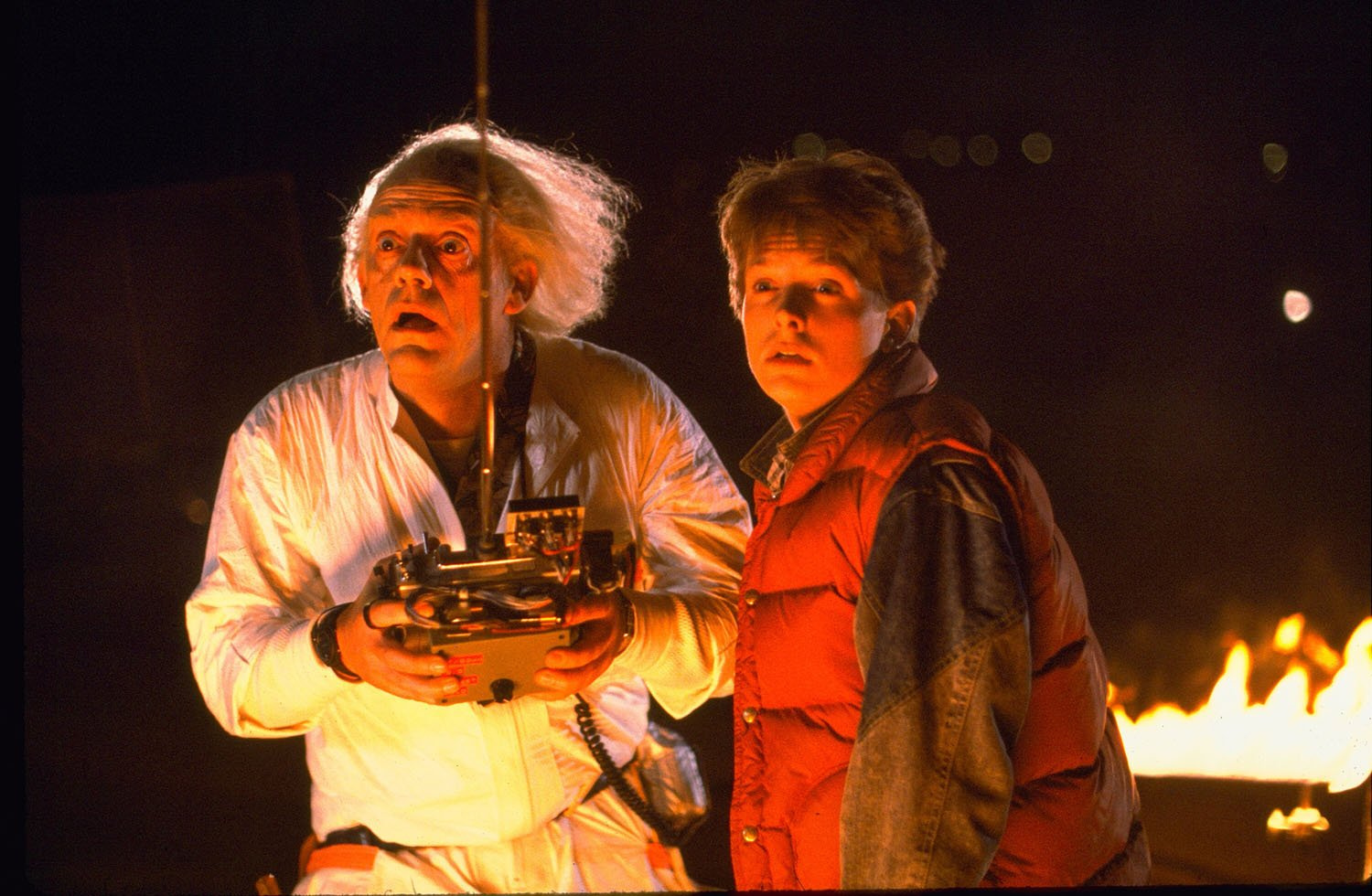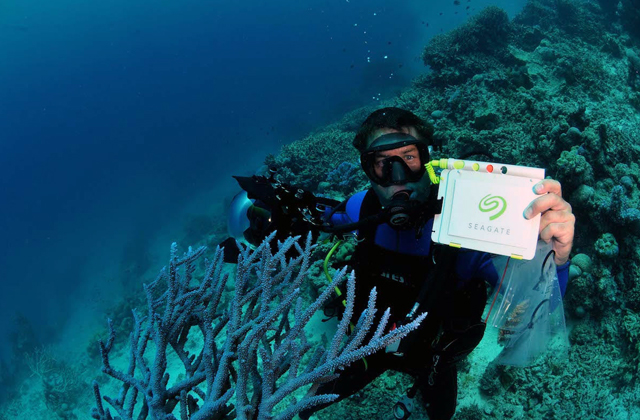
During the tests, the Seagate engineers look much more restrained, but the emotions are about the same.
Today we will tell you about how we approach the work with the quality of products.
Every product has a life cycle and claiming something forever is at least dishonest. However, it is up to the manufacturer to ensure that the product is of high quality and reliability throughout the entire life cycle.
The products of our company are used for storing data both in the corporate market and among private users, which means that the devices can theoretically end up anywhere: not only in an office laptop or in a huge data center, but also in more exotic places - on an underwater submersible. in hot and humid tropics, at an arctic research station, etc. Regardless of scenarios and places of use, they have one thing in common: people trust storage devices the most precious thing - data; whether it be research results, important commercial information or unique photographs - no one wants to lose even a small piece of their information.
Therefore, today we will talk about quality control, especially since for us this is not an empty phrase and not a one-time procedure. The company's solutions go through more than 160 rigorous tests, and some products overcome an obstacle course of more than 500 tests before entering the market (a number of indicators are measured literally from concept to end of life). For example, disks - you can read about their tests in our blog on Habré - back in 2016 there was a post-tour of the Seagate quality control laboratory. We have adjusted the layout of the publication, although since then there have been many changes in our production.
Quality control. How does this happen?
In several stages:
- Seagate : , ? : — . , .
- Seagate .
- — , . , — , , . 160 . «» — , , , , , .
( 75 °C — , , 56,7 °C). , . — , 12 000 ( , 8848 ).
20 000 , 5 000 000 . - (, - - ), . : , . , , , . : , , , , . (Steven Crochiere, Seagate) , , , , 85 °C 100 °C ( ).
Only after all the tests are the products delivered to the wide corporate market and retail.
In general, data security begins even earlier - before the disk is produced:
- Design-level security: Seagate's drive design process is completely closed to anyone except authorized, verified employees;
- all device components are supplied by reliable suppliers;
- each node is assembled at a guarded facility;
- Seagate Secure devices are shipped only by verified partners;
- Despite all the technical complexity of devices, it is simple and understandable to deploy a storage infrastructure on their basis, the risk of errors is minimized;
- Instant Secure Erase erase all data in seconds for quick and painless decommissioning.
These are all just part of the Seagate Secure suite of solutions.
Data that cannot be lost
Reliable data storage systems are primarily important for the corporate sector, which uses them for big data, video surveillance systems with artificial intelligence on board, the Internet of things, deployment of complex loaded applications, analytics systems, and more. These are the tasks that many Habr users probably face on a daily basis.
But besides the corporate sector, there are also private users, creators, and scientific organizations who trust Seagate no less. We have collected some examples for you from a “live”, non-corporate environment.

Researcher and his reliable assistant. By the way, during the study, for the first time in 30 years, a new species of coral was discovered.
Oceanologists use the data to protect Australia's endangered Great Barrier Reef. Sections of this reef die from overheated sea water - global climate change has already reached there. Scientists use external drives to collect and analyze data from an international research expedition. The data collected on the discs provide insights into where, how and why corals survive (or not). This offers a chance to answer some fundamental questions and save coral reefs.
The collected data is enormous: every day, scientists take more than 20,000 high-resolution photos, shoot gigabytes of video from underwater cameras and aerial drones (reef mapping), and record data. Information must be collected, processed and safely stored - on the ship of researchers for these purposes, a networked storage (NAS) QNAP TS-1231XU-RP-4G with 12 compartments is used. This system is packed with 12 12TB IronWolf Pro drives for a total of 144TB of storage. This large-capacity NAS makes it easy to collect, analyze, share data and collaborate with a large group of people. The research team also uses the Seagate DJI Fly Drivefor drone surveys and a mobile drive to support field research. Obviously, we would not want to lose such data.

Photo by Nick Raines, a renowned photographer who also uses Seagate storage solutions and believes that keeping data safe is the right paranoia.

Photo by Jonathan Irish from a trip to 59 US parks
Losing a valuable shot is a tragedy for every photographer. Jonathan Irish filmed in 59 national parks in the United States ( link to the website about this cycle ) - each of his photographs is a unique combination of the moment and the author-photographer's eyes on him, a frozen impression that needs to be preserved and conveyed to the viewer. So, during one of his trips to the United States, the author took no less than 248,000 photos! In addition to his Fujifilm X-T1 camera and select lenses, Jonathan also brought two LaCie Rugged drives with himto save images in the field - ruggedness, ruggedness and small form factor made the perfect travel storage solution. "I've never had a LaCie drive failure, which I can't say about other brands, ”the photographer left a review. At the end of a huge trip to national parks, he had 16 TB of images and videos.
Seagate Quality Principles
In the 2020 reporting year, Seagate shipped HDDs with a total capacity of 409.9 EB (exabytes, 10 18 or quintillion bytes), while a year earlier the release was equal to 347.4 EB. The average device sold was 3.7 TB, up from 2.5 TB in 2019. Such indicators oblige the company to guarantee the corporate sector and private users a high level of reliability. Seagate has several important principles in this regard.
- Seagate 4.0 — , , IT 4.0 — , . : , . IT 4.0 , , .
- IT 4.0 . , . , .
- , , Seagate , . Seagate , , , . . .
- Seagate , : , . : -, , ; -, — .
- We find the key to quality in a comprehensive understanding of the client. We study everything from temperature, humidity and device workloads to popular applications, use cases, critical customer requirements. All collected information forms the analytical basis for the development of internal requirements for drives. Thus, Seagate offers solutions that can resiliently operate in a wide variety of environments.
Why are we writing about this on Habré? Partly to talk about product reliability, but more to draw the attention of the entire IT industry to the issue of quality management.
* * *
Alas, as nothing is eternal, so nothing is perfect: there are claims to Seagate, just like to all other companies. If there is any production miscalculation, then we urgently make a decision within the company, but quite often the cause of the breakdown is completely barbaric exploitation - so merciless that none of the 160 inspections dreamed of; for us these are lessons and ways of further development. It is important to remember that even the Earth and the Sun have a hypothetical ultimate strength and service life :)